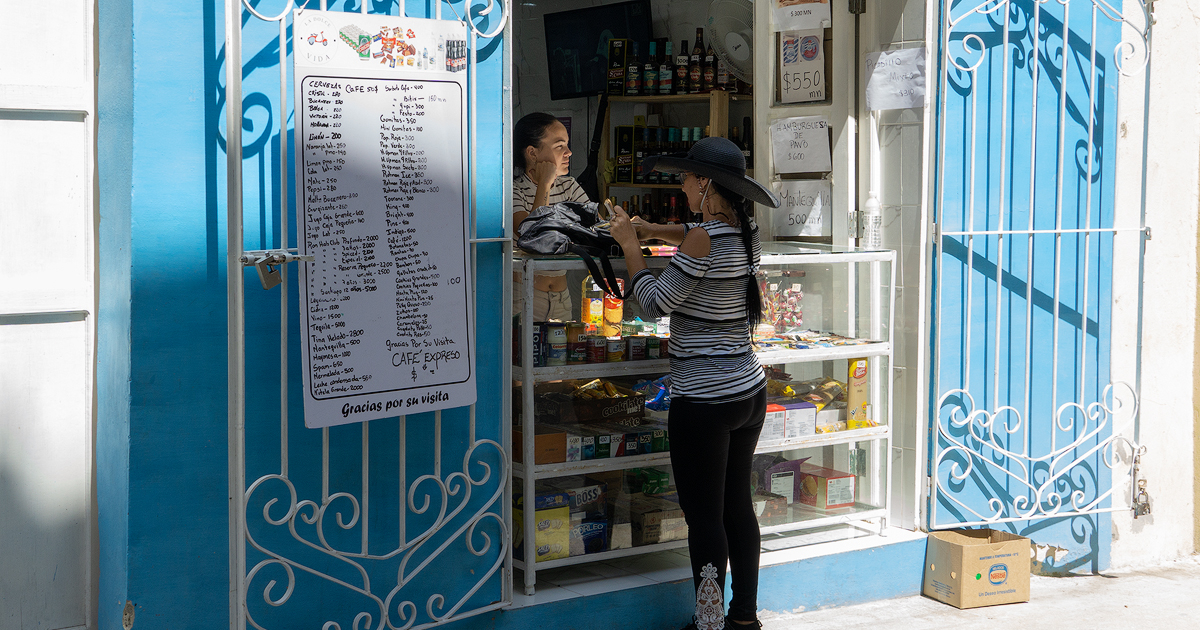
The Deputy Minister of Finance, Lourdes Rodríguez, confirms that, as reported by CiberCuba, they are preparing a maximum price cap for five basic consumer products on the island: detergent, powdered milk, soybean oil, pasta (spaghetti, etc.), chicken, and sausages. According to Rodríguez's explanation to the state television, this is a "temporary regulation" that was not implemented as planned on July 1, but they have a task force of 7,000 inspectors ready to enforce the regulation.
Rodríguez clarified, in statements to Canal Caribe, that officials who have been trained to enforce Decree 30, which establishes the sanctioning regime in the fight against price violations, have been added to the inspectors.
According to the deputy minister, this new cap on the most consumed foods by Cubans in a climate of hyperinflation and rising cost of living "was proposed since May" and was scheduled to come into effect on Monday, July 1, but has been postponed although "it is ready to become a systematic operating mechanism."
Lourdes Rodríguez stated that in order to come to the conclusion that the price cap on the six products is a positive measure, 3,400 "exchanges" have been prepared with representatives of small and medium-sized enterprises, which have been, in her opinion, "positive and fruitful." In these meetings, the issues related to the expenses of acquiring goods and the cost of transportation have been mainly addressed.
From the social network Facebook, various state entities announced the decision to postpone the implementation of price caps, stating that it is the result of analysis and exchanges between government representatives and non-state management forms, while indicating the continuation of dialogues.
CiberCuba had access to the content of one of these meetings and in it, the Deputy Minister of Finance herself announced that the maximum retail price of chicken (package of thighs and drumsticks) would be set at 680 pesos per kilogram (310 pesos per pound); powdered milk would be sold at a maximum of 1,675 pesos per kilogram; pasta (spaghetti, etc.) at 835 pesos per kilogram; sausages at 1,045 pesos per kilogram; powdered detergent at 630 pesos per kilogram; and soybean oil at 990 pesos per kilogram. These prices, the Deputy Minister clarified, "will be made public prior to their implementation."
As of today, a pound of chicken is sold in Havana at 370 pesos; oil ranges between 1,200 and 950 pesos; a kilo of powdered milk costs 2,500; detergent is priced at 250; a 10-piece sausage pack costs 400 pesos, and spaghetti is priced at 350.
The deputy minister emphasized that the territories will have autonomy to "set prices with distributors" and highlighted that this measure aims to "perfect price policy."
What small and medium-sized businesses think
In a recent meeting that the Vice Minister of Finance held with SMEs, the entrepreneurs openly discussed with the representative of the regime that they are under great fiscal pressure (due to many taxes) and they conveyed their concern because the price ceiling does not include the VAT (Value Added Tax) that they have to pay when making purchases, and sometimes they cannot even pass it on to consumers because otherwise, they would not be able to sell their products. Additionally, they mentioned that the volatility of the international market does not guarantee that prices will remain stable. If the purchase is not profitable, the same thing that is happening in many parts of the country could happen, where chicken and powdered milk are missing.
The SMEs also conveyed to the vice minister the serious problems they have in filling up the fuel tanks of the trucks in order to distribute goods or unload containers at the Port of Mariel. Lourdes Rodríguez did not provide any solutions to their problems, especially because one of them is the exchange rate that the Government does not control.
What do you think?
COMMENTFiled under: